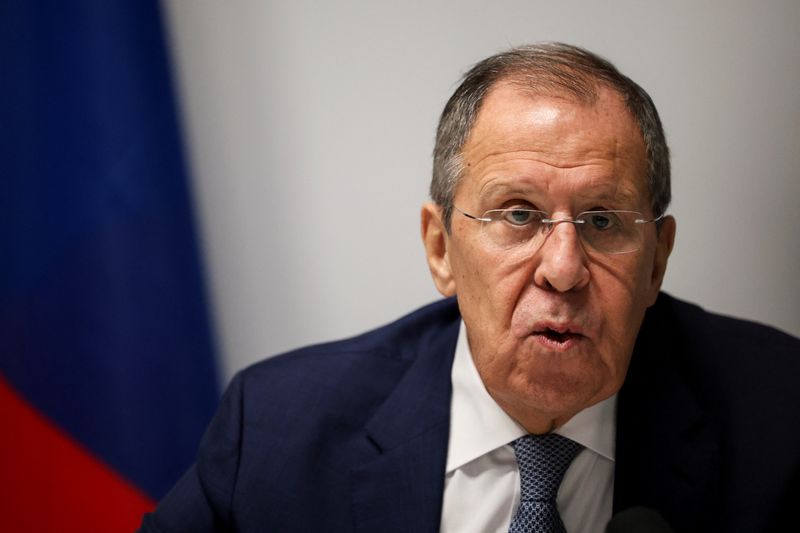By Anton Kolodyazhnyy and Man Faulconbridge
MOSCOW (Reuters) – Russia will scrap a moratorium on the deployment of intermediate and shorter vary nuclear-capable missiles as a result of the US has deployed such weapons in numerous areas all over the world, Russian Overseas Minister Sergei Lavrov stated on Sunday.
Russia’s transfer, lengthy signalled, will kill off all that is still from one of the crucial important arms management treaties of the Chilly Warfare, amid fears that the world’s two largest nuclear powers could possibly be coming into a brand new arms race along with China.
Russia and the US, who each admit their relations are worse than at any time because the depths of the Chilly Warfare, have each expressed remorse in regards to the disintegration of the tangle of arms management treaties which sought to sluggish the arms race and scale back the danger of nuclear conflict.
Requested by state information company RIA if Russia might withdraw from the New START treaty earlier than its expiry in February 2026, Lavrov stated that there have been at present “no conditions” for a strategic dialogue with Washington.
“Today it is clear that, for example, our moratorium on the deployment of short- and intermediate-range missiles is no longer practically viable and will have to be abandoned,” Lavrov stated.
“The U.S. has arrogantly ignored the warnings of Russia and China and in practice has moved on to the deployment of weapons of this class in various regions of the world.”
The Intermediate-range Nuclear Forces (INF) Treaty, signed by Mikhail Gorbachev and Ronald Reagan in 1987, marked the primary time the superpowers had agreed to cut back their nuclear arsenals and eradicated a complete class of nuclear weapons.
America beneath former President Donald Trump formally withdrew from the INF Treaty in 2019 after saying that Moscow was violating the accord, an accusation the Kremlin repeatedly denied and dismissed as a pretext.
Russia then imposed a moratorium by itself improvement of missiles beforehand banned by the INF treaty – ground-based ballistic and cruise missiles with ranges of 500 km to five,500 km (310 miles to three,417 miles).
Trump in 2018 stated he wished to terminate the INF Treaty due to what he stated have been years of Russian violations and his considerations about China’s intermediate-range missile arsenal.
America publicly blamed Russia’s improvement of the 9M729 ground-launched cruise missile, recognized in NATO because the SSC-8, as the rationale for it leaving the INF Treaty.

In his moratorium proposal, Putin prompt Russia might agree to not deploy the missiles in its Baltic coast exclave of Kaliningrad. Since leaving the pact, the US has examined missiles with the same profile.
Russia fired a brand new intermediate-range hypersonic ballistic missile often called “Oreshnik”, or Hazel Tree, at Ukraine on Nov. 21 in what Putin stated was a direct response to strikes on Russia by Ukrainian forces with U.S. and British missiles.




